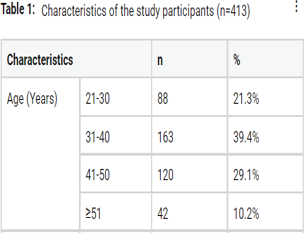Abstract
Antimicrobial stewardship (AMS) is of vital significance to tackle the antibiotic resistance. Insights of physicians is important for implementation of AMS. Therefore, present study was conducted to assess the knowledge, attitude and practices regarding antibiotic stewardship programme among professional physicians in Riyadh, Saudi Arabia. A cross-sectional questionnaire-based survey was conducted among professional physicians between January 2020 to April 2020 in clusters of Saudi hospitals. The self-administered and closed ended questionnaire encompassed of informed consent, demographics information and questionnaire which included 7 items for knowledge, 10 for attitude and 8 for practices. Chi-square test and Fisher’s exact test was performed to assess the relationship of knowledge, attitude and practices with gender and medical specialty of the study participants along with descriptive statistics. A p value below (p<0.05) was considered significant for all the statistical purposes. A total of 413 medical practitioners participated in this study. Most of the participants were male 280 (67.8%), aged 31-40 years 163 (39.4%). The term antimicrobial stewardship was known to 55.9% of participants and 65% of participants knew the difference between bacteriostatic and bactericidal antimicrobial agents (AMAs). 71.9% participants opined that superinfections can be prevented by using specific AMAs. 89% of participants do not prescribe AMAs on demand of patients. Health professionals should be adequately trained regarding usage of antimicrobials and their consequences to curb the menace of quickly developing AMA resistance.
Full text article
Authors

This work is licensed under a Creative Commons Attribution-NonCommercial-NoDerivatives 4.0 International License.

